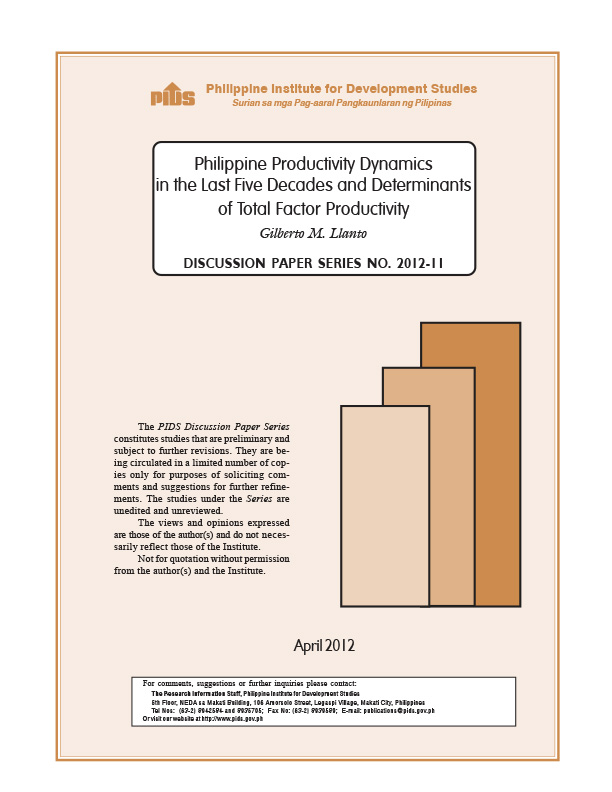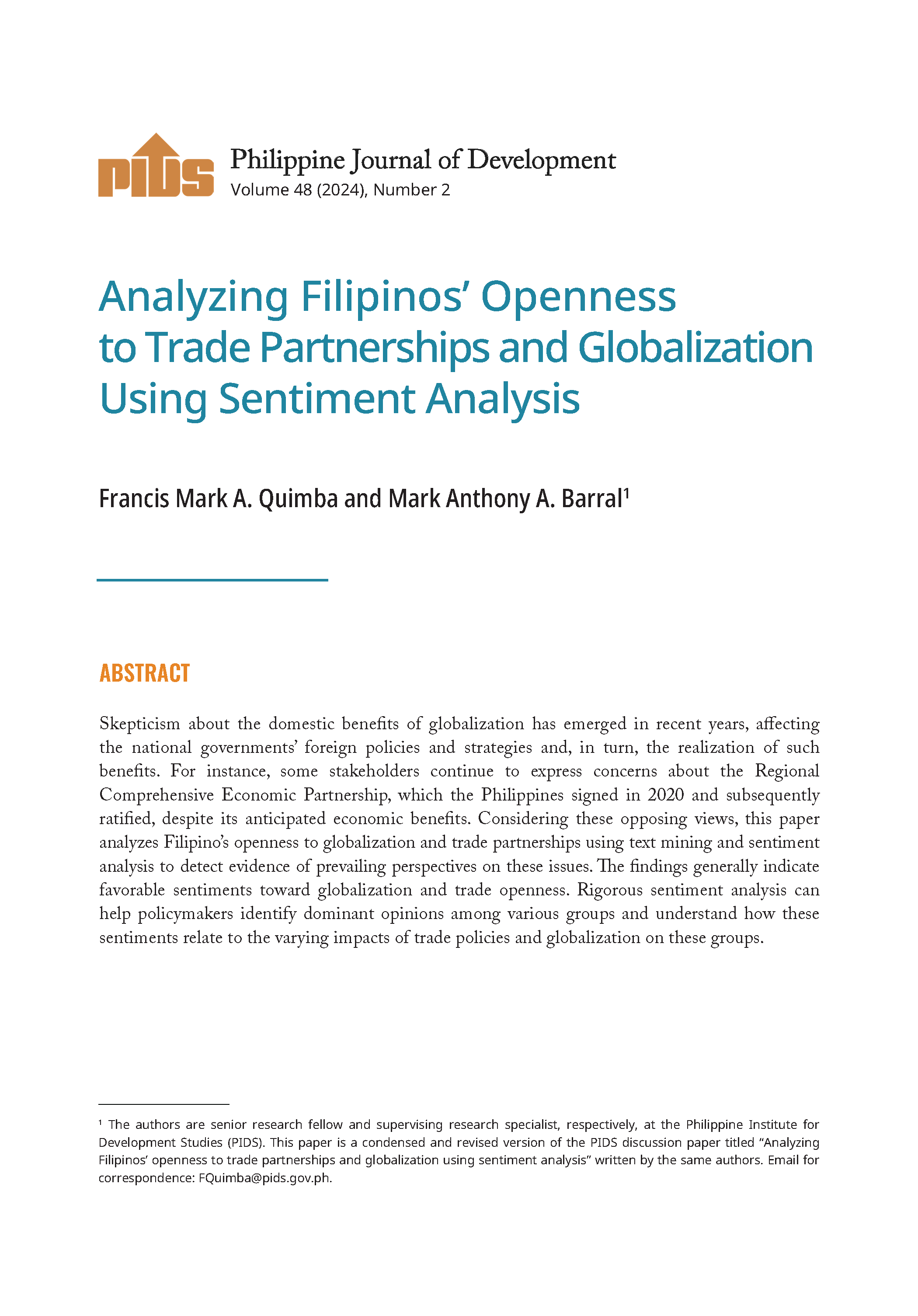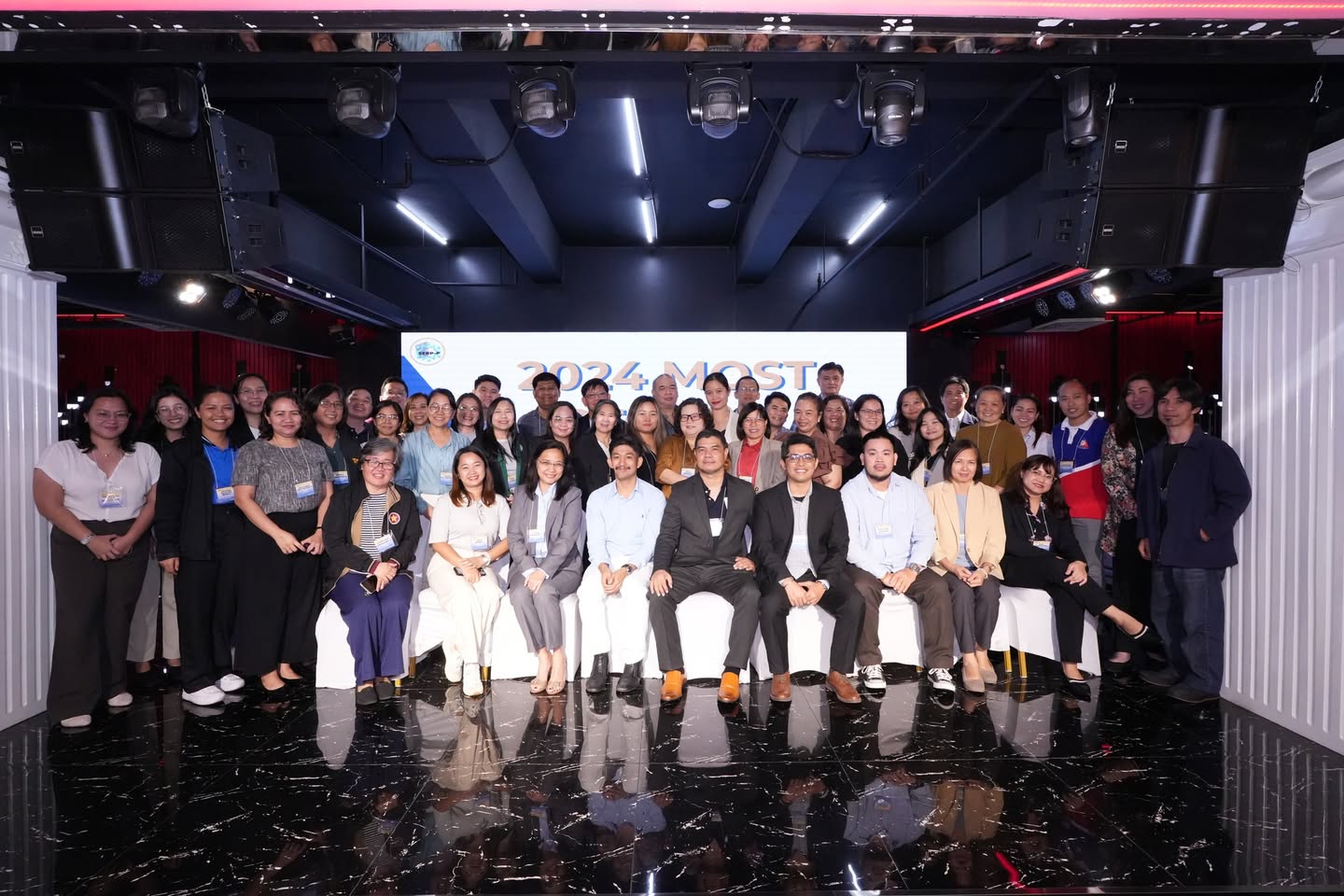Various studies showed that total factor productivity (TFP) has not been a source of growth in the Philippines. It seems that factor accumulation, which is not a sustainable source of growth, has underpinned Philippine economic growth. Studies have also shown that the sustained growth of developed countries has ridden on the back of technological advances rather than on increasing use of factor inputs. Total factor productivity improvement is the only route to sustain economic growth in the long run. After a brief review of economic growth and productivity dynamics of the Philippine economy in the past fifty years, the paper provides an estimation of the determinants of total factor productivity and labor productivity. In the light of the empirical findings reported in this paper, some policy levers present themselves as critical in improving productivity growth in the economy. Investments in education, more government expenditure for improving human capital, greater openness of the economy, and macroeconomic stability are indispensable.
Citations
This publication has been cited 1 time
- Tan, Yuyan, Yang Ji, and Yiping Huang. 2016. Completing China's interest rate liberalization. China & World Economy, 24, no. 2, 1-22 . Institute of World Economics and Politics, Chinese Academy of Social Sciences.













